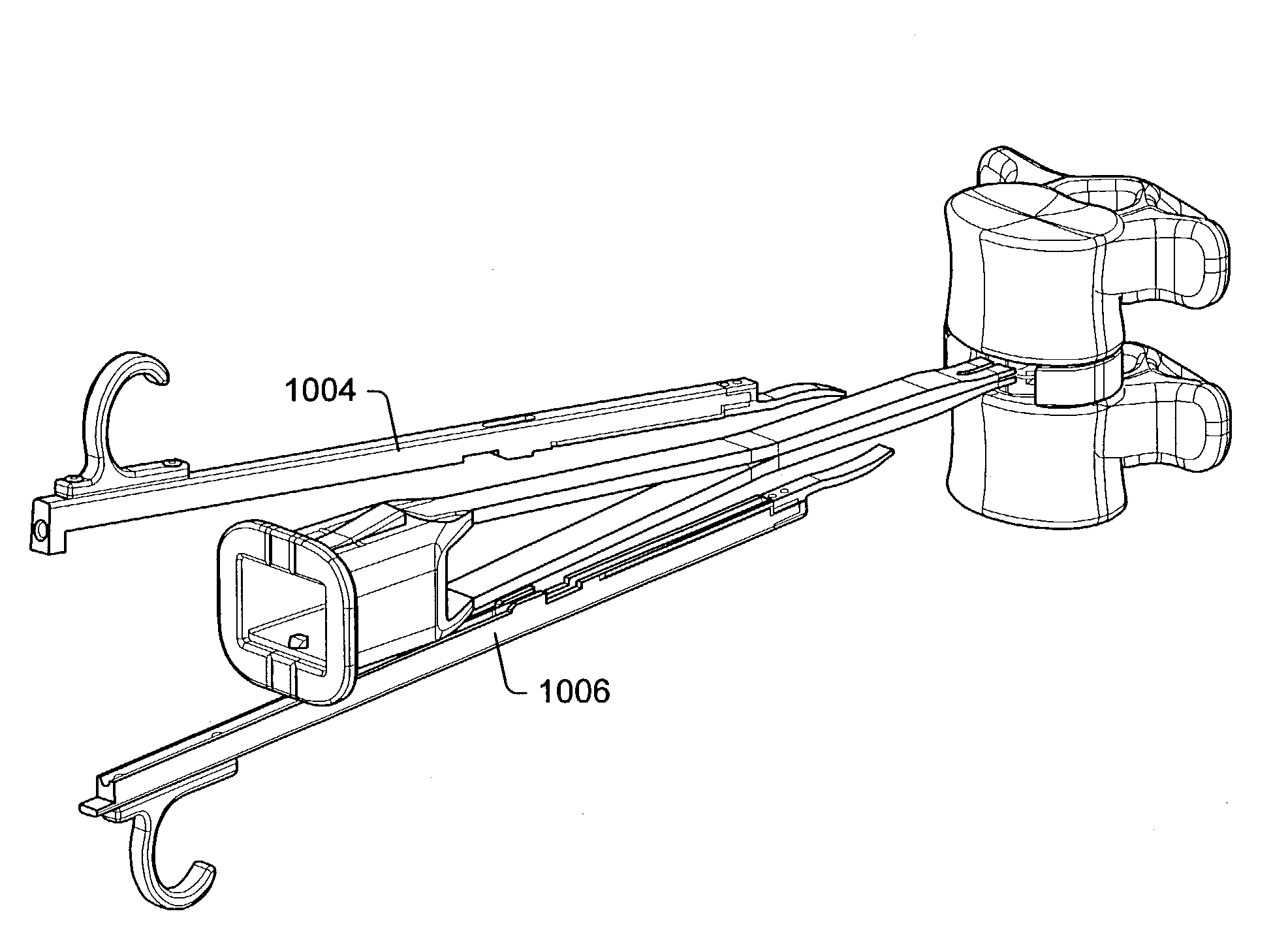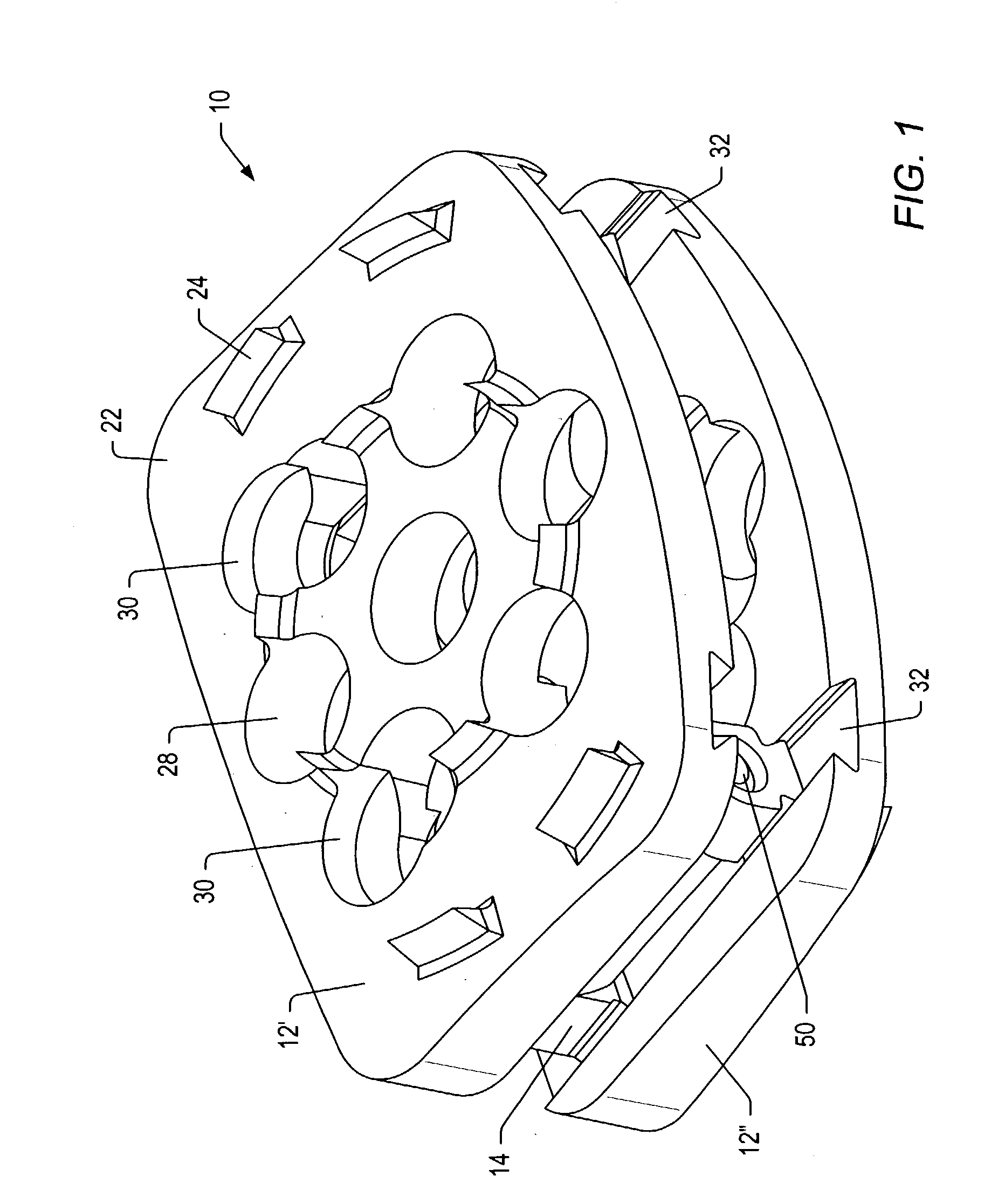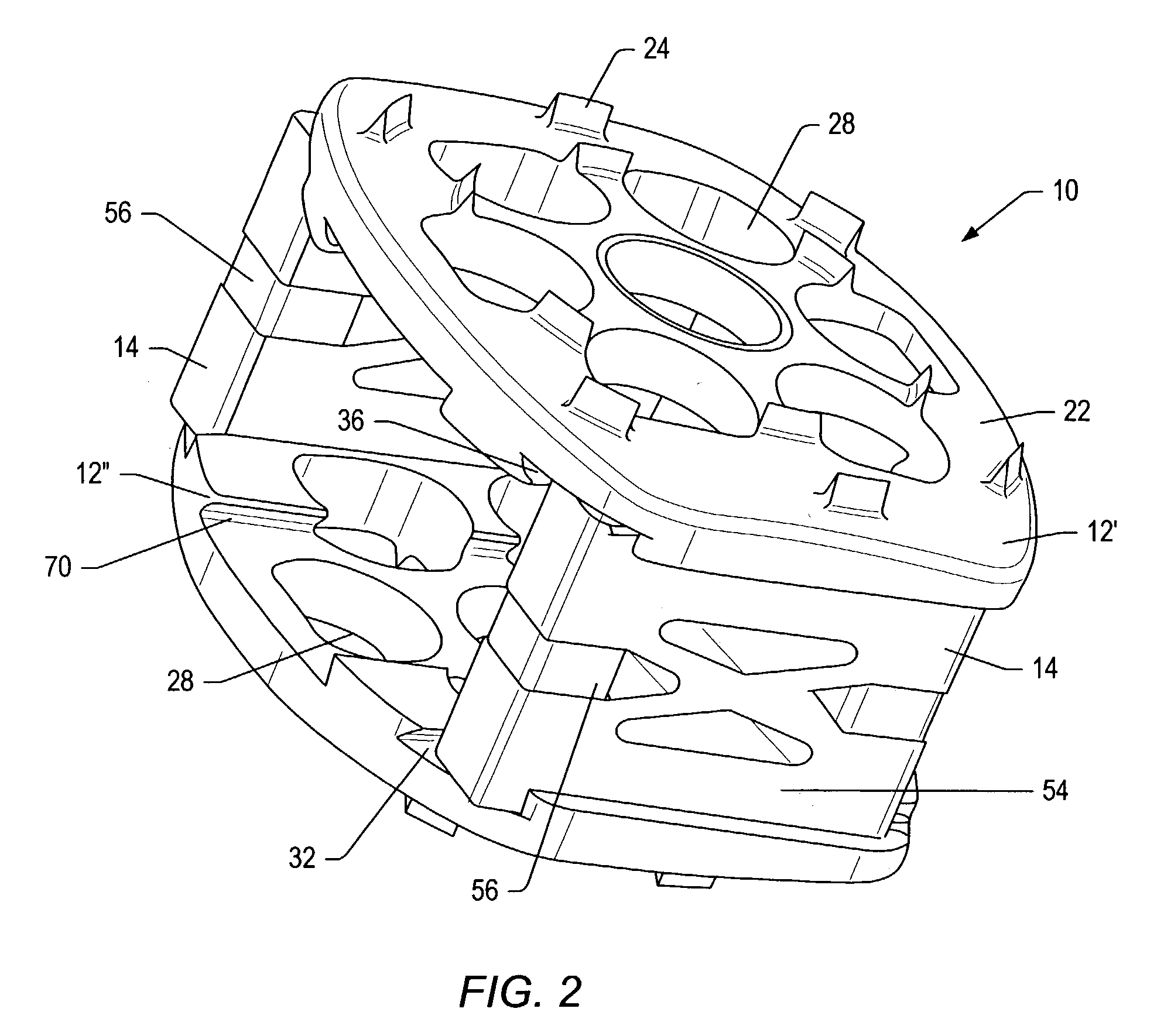Spinal implant including a compressible connector
a technology applied in the field of spine implants and connectors, can solve the problems of pain and/or nerve damage, subsidence or deformation of vertebrae, and alteration of the natural separation distance between adjacent vertebra
- Summary
- Abstract
- Description
- Claims
- Application Information
AI Technical Summary
Benefits of technology
Problems solved by technology
Method used
Image
Examples
Embodiment Construction
[0085] Referring to the drawings, FIG. 1 and FIG. 2 show perspective views of embodiments of implants 10. An implant may include members and a spacer between the members. The members may be implant members that contact surfaces of bone that are to be joined together by the implant. The spacer may establish a desired distance between the members. The spacer may be a formed of one or more components. In some embodiments, implant 10 may be a spinal implant. In some embodiments, the spinal implant may be a fusion device that promotes bone growth between vertebrae to fuse the vertebrae together. In some embodiments, the spinal implant may be an artificial disc that joins two vertebrae together while still allowing for at least some motion of the vertebrae relative to each other. In some embodiments, the implant may be an implant that joins and promotes fusion of two portions of a bone (e.g., a femur).
[0086] Implant 10 may include a pair of implant members 12 and connector or connectors 1...
PUM
| Property | Measurement | Unit |
|---|---|---|
| force | aaaaa | aaaaa |
| height | aaaaa | aaaaa |
| height | aaaaa | aaaaa |
Abstract
Description
Claims
Application Information
 Login to View More
Login to View More - R&D
- Intellectual Property
- Life Sciences
- Materials
- Tech Scout
- Unparalleled Data Quality
- Higher Quality Content
- 60% Fewer Hallucinations
Browse by: Latest US Patents, China's latest patents, Technical Efficacy Thesaurus, Application Domain, Technology Topic, Popular Technical Reports.
© 2025 PatSnap. All rights reserved.Legal|Privacy policy|Modern Slavery Act Transparency Statement|Sitemap|About US| Contact US: help@patsnap.com



